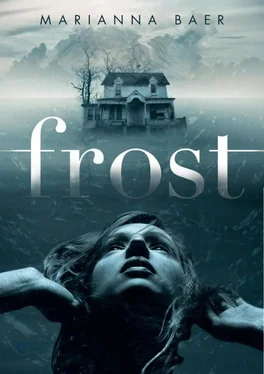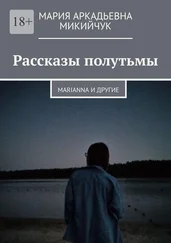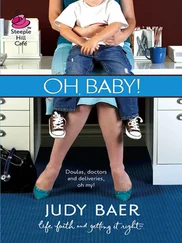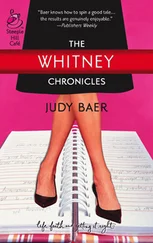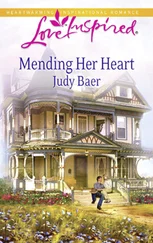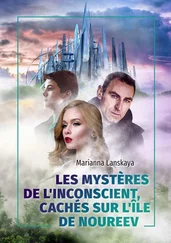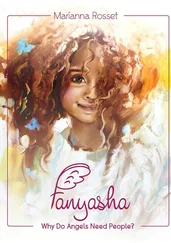I crossed the room to look outside. The angle of the light coming through the window brought out the layers of dirt that had built up on the pane. Ugh. How had I not noticed this before? I ran a finger down the cold glass. Dirt stuck to the tip.
I got a pile of newspapers from the common room and the Windex from under the bathroom sink. I started at the far right window—just as dirty as the other. I sprayed the cleaner and began wiping with a wadded-up clump of newspaper.
I breathed in and out with the strokes of my arm. Okay. I didn’t need to think about David’s part in this. About his strange reaction. Or what was going to happen to us. No good could come from dwelling on the possibility of losing him, the way I always seemed to do in the closet.
I rubbed circles of streaky liquid round and round the next pane. My wad of newspaper bumped up against the wood frame that had splintered when I’d been hanging the blinds with David. It had been ready to fall apart, that piece of rotten wood. But it took me drilling into it for the large chunk to splinter off. What had happened to Celeste, to make her mind splinter like it had?
I thought back to the beginning of the semester, to the bad things that happened to her right off the bat—the ripped skirt, the broken vase. One possibility, of course, was that she had unknowingly caused these things to happen herself. But maybe she hadn’t. Maybe someone else had done these things, and that had been part of what had instigated Celeste’s paranoia. She thought someone was out to get her because, in a way, someone was out to get her. Was it possible that a mental disorder could be set off by something like that? Or had the mental disorder itself caused the things to happen? Which came first, the chicken or the egg?
I didn’t hear from David until late that afternoon. I was about to lose it, wondering whether he had talked to Celeste yet, when my phone finally flashed his name.
“Can you have dinner at Tonio’s?” he said.
“Tonio’s? Sure, why?”
“I’m hungry.” I thought I heard laughter in the background.
“Okay,” I said. “I’ll pick you up in half an hour.”
I was surprised that David was hungry at all, let alone in the mood to go to a romantic, off-campus restaurant. I was even more surprised when I picked him up at his dorm and found Celeste there with him. He slid in the front, Celeste and her crutches in the back.
“Where should I drop you off?” I asked her.
“I’m coming to dinner,” she said. Even in the small reflection in the rearview mirror, I could see that despite the dark bags, her eyes sparkled like they hadn’t before. Her whole expression was entirely different from yesterday’s.
David’s face was more serious than hers, but not nearly as morose as when I’d left him. A disturbing new idea wiggled its way into my brain. Was it possible—at all possible—that this whole thing had been a joke? Or some kind of sick Lazar family test? Well, if it was, there was no question—I was done with both of them.
I got no clues from their conversation on the drive to Tonio’s. Celeste spent the whole time talking about the upcoming student exhibition her photos were going to be in, and soliciting our opinions about what she should wear to the opening. If this wasn’t a joke, had David even talked to her?
At Tonio’s, the maître d’ gave us the polite but tired smile Barcroft students always get and led us to a small, velvet-upholstered booth at the back of the dark restaurant.
Celeste immediately grabbed a breadstick from a ceramic jar. David opened the stiff, gold-embossed cover of his menu.
I opened mine, but the words didn’t coalesce into meaningful phrases. I shut it. “So, why are we here?” I said. “It’s not your birthday, is it? That’s in a couple weeks.” A ludicrous guess; of course this wasn’t a birthday party.
“We wanted somewhere private,” David said.
“Aren’t these booths great?” Celeste ran a hand over the tufted, burgundy velvet. “Old-school glamour. I’d like to have one in my house.”
A waiter in black pants and a white button-down appeared at our table. “My name is Cliff and I’ll be your server this evening. May I take your drink order?”
“Diet Coke, please,” I said, then added, “Actually, just water.” I didn’t need any caffeine.
“Club soda,” Celeste said. “With one maraschino cherry, and a slice of lime.”
“Sam Adams,” David said.
“May I see some ID, sir?” Cliff said.
David looked surprised, then embarrassed. He began patting his pockets. “Oh, sorry, I don’t think I brought … That’s okay. I’ll just have a Coke.”
“Why somewhere private?” I said, once we were alone again.
“We have a plan,” David said. “Well, the start of one.”
“Okay …”
David placed both palms on the table and leaned forward. “Here’s what we do. We convince the school that Frost House isn’t safe to live in. That way, you all get to move out, no one knowing the real reason you need to.”
“What do you mean, ‘isn’t safe’?” I said. “You’re going to tell them there’s something evil in the house?”
“Of course not,” David said. “We prove that it’s physically unstable. I don’t know, like the roof might collapse or whatever. Maybe we could start a fire or something, just a small one.”
I sat there, looking back and forth between the two of them. Their expressions were anxious, but in an excited, not-nervous way. Kids listening for Santa’s sleigh on the roof.
The waiter placed our drinks on the table. “Would you like to hear this evening’s specials?” he said.
Specials? Who could think about food? I couldn’t even conceive of reading through the menu with David’s words hanging in the air. A fire? Was he kidding?
“I don’t need to hear specials,” I said, just to say something. “I’ll have the fettuccini Alfredo, please.”
“Steak for me,” David said. “Rare.”
“Ooh, me too.” Celeste was almost giddy. “Listen,” she said to the waiter, “do you think the restaurant is going to get new seating anytime soon? Because if they do, I’d be interested in buying one of these booths.”
Cliff stifled a smile. “I don’t think so. I’ll check, though.” He chuckled as he walked away.
“You’re joking, right?” I said to David.
“I know it sounds extreme,” he said. “But think about it.”
“Burning down the haunted house,” I said. “Like in a cheesy horror movie? Are you crazy?” Right away I knew it was a bad choice of words.
“David and I are both crazy,” Celeste said in a woo-woo, exaggeratedly eerie voice. She wiggled her fingers in the air. “And we’re going to make you crazy, too.”
“No, we’re not,” David said. “I don’t necessarily mean a fire. Just something to make the house unlivable. You know all about house construction. What could we do to make it unlivable? Like,
a major plumbing leak or something that ruins some stuff.”
“I don’t want it to be unlivable,” I said. “In case you’ve forgotten, I live there!”
“So you’ll move into an empty room somewhere else.” David pulled out a breadstick and snapped it in half.
“No. This is a ridiculous idea.”
“Leena,” David said. “Celeste can’t keep living there. And any other solution involves making her look sick. Unless you want us to make up some story about how you guys are mean to her. We’ll tell the dean she’s too miserable to stay there.”
“No way,” I said. “Absolutely not.” Aside from the fact I’d be mortified for them to do that, this whole plan was predicated on the fact that Celeste would be okay if she moved out. Could David honestly believe that?
Читать дальше
